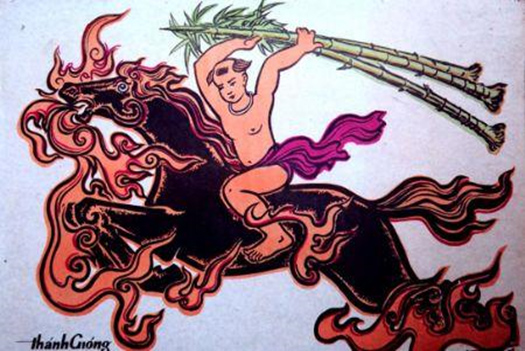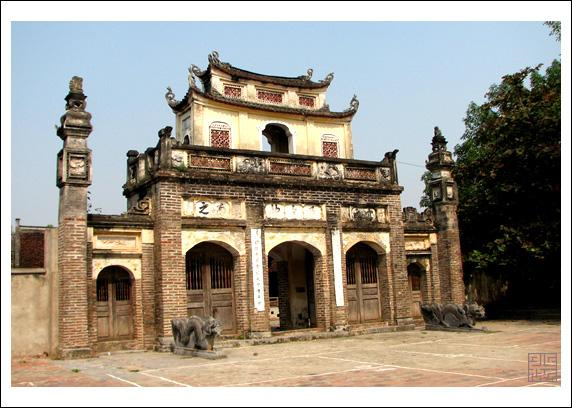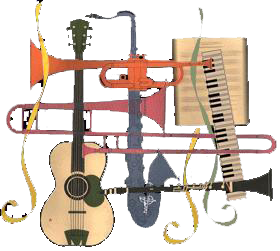The Myth of a Giant: Phu Dong Thien Vuong
Introduction:
The story of Phu Dong Thien Vuong is particularly interesting in that it is one of the most ancient Vietnamese legends and contains several popular elements frequently encountered in ancient mythology: the savior, the virgin birth or "immaculate conception", the horse, and the prophecy.
Hung Vuong is a mythical Vietnamese dynasty. According to Vietnam Su Luoc (Vietnamese History Synopsis) by Tran Trong Kim (Bo Giao duc, Trung Tam Hoc lieu Xuat ban,1971), Lac Long Quan (The King of the Tribe Lac) was the son of Kinh Duong Vuong (circa 2879 BC) and the Dragon Lady (Long Nu). Lac Long Quan married Princess Au Co and they had one hundred children. Fifty of the children went to live with their mother in the northern mountain and the other fifty with their father to live by the sea in the South where he came from. Lac Long Quan made his first son King of Van Lang (former name of Vietnam), the first of 18 Hung Vuong Kings.
The story probably took place circa the third millennium B.C.
Tran Trong Kim noted that there is no mention of this tale in Chinese archives and doubted that An aggressors were actually from China, which at that historical period was located up North, in the basin of Huang Ho River, too far away to wage war with such a small tribe-nation as Van Lang. However, through the many years of fighting for independence from Chinese domination (from 1st to 10th century), Phu Dong Thien Vuong has always been a strong symbol of the struggle for independence against the Chinese.
From the mythological point of view, a few religious references and particularly related quotes from Barbara G. Walker’s The Women’s Encyclopedia of Myths and Secrets may give us some additional insight:
- ● "Appearing in every mythology as the primal Elder Race, Giants were obvious projections of every child’s early perceptions of the adult world. Like adults seen through the eyes of the toddler, giants tend to be fearsome, sometimes bloodthirsty, but sometimes benevolent, possessors of an arcane ancient wisdom, and adepts of magic.” (Walker)
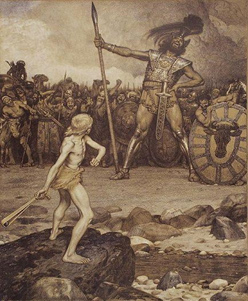
Fig 2: Goliath, the giant from The Old Testament
- ● According to the Bible, giants were like “all Savior-figures", "offsprings of divine fathers and human mothers (Genesis 6:4)".
- ● "The notion that mortal women were impregnated by gods or spirits was a matter of everyday acceptance throughout the ancient world. Even the Old Testament says the "archaic giants" (ancestral heroes) were born of mortal women impregnated by spirits that came from God (Genesis 6:4).” (Walker).
In the story of Buddha’s birth, his mother Queen Maya saw in her dream devas (angels) which elevated her into white mountain peaks; then a white bull elephant with a white lotus in its trunk approached her, struck her on her right side with its trunk and vanished into her.
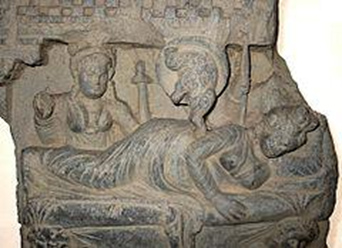
Fig 3: Queen Māyā's white elephant dream, and the conception of the Buddha (Wikipedia)
● The horse is faster than the wind and can fly through the air. in shamanism, the horse allows the shaman to fly through the air and reach the heaven.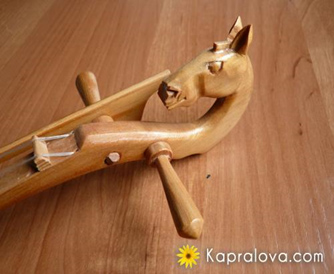
Fig 4 : Horsehead fiddle (Morin khuur)
Morin khuur or morinkhur (Buryat) - literally means "instrument with the head of a horse." This ancient stringed bowed musical instrument has a Mongolian origin, but also it distributes in Russia - in Buryatia, Tuva, Irkutsk region, Trans-Baikal region.
"Horsehead sticks were ridden by central Asian shamans. The horse enables the shaman to fly through the air, to reach the heavens. The dominant aspect of the mythology of the horse is not infernal but funerary; the horse is a mythical image of death and hence is incorporated into the ideologies and technique of ecstasy" (Eliade,S.) (Walker)
The Celtic Queen of Horses is the Goddess of the other world. Her horse travels through the space of night as an image of death and rebirth (Nadia Choucha in Surrealism and the Occult).
Fig 5: Temple dedicated to Thánh Gióng: Phù Đổng Temple (or Gióng Temple) (Đền Phù Đổng hay Đền Gióng, Hà Nội, Việt Nam)
The Legend of The Heaven-Sent King From Phu Dong Village:
Phu Dong Thien Vuong.
(Translated and adapted from Trinh Van Thanh, Thanh Ngu Dien Tich Danh Nhan Tu Dien, Xuan Thu)
During the sixth Hung Vuong Dynasty, our country, then called Van Lang was under the menace of the An , situated in the North of Vietnam’s borders.
Hung Vuong King was very worried and assembled his court to prepare a plan of defense for the country. A mandarin of the civil service reminded the King that the original founding King of the country, Lac Long Quan (the Dragon King of the Lac Tribes), had instructed that if the country were ever to face danger, it should pray for his help.
The King then invoked the spirit of the founding King. Three days later, a very old man appeared in the midst of a storm and said that he was Lac Long Quan himself. He prophesied that in three years the An from the North would try to invade the country; he advised that the King should send messengers all over the country to seek help from talented people, and that thereafter a general sent from heaven would come to save the country.
Three years later, indeed came the tempestuous foreign armies trying to take over the Southern Kingdom. At the capital city of Phong Chau, King Hung Vuong still remembered the instruction from Lac Long Quan.
A few years earlier, at the village of Phu Dong, County of Vo Ninh, Province of Bac Ninh, a woman in her sixties reported she had seen footprints of a giant in the field. Amazed, she tried to fit her feet in the footprints and suddenly felt that she was overcome by an unusual feeling. Thereafter she became pregnant and delivered a boy whom she named Giong. Even at the age of three, Giong was not able to crawl, to roll over, or to say a single word.
Surprisingly, at the news of the messenger from the King, Giong suddenly sat up and spoke to his mother, asking her to invite the messenger over to their home. He then instructed the messenger to request the King to build a horse and a sword of iron for him so that he could go and chase the invaders away.
When the horse and sword were eventually brought to his home, Giong stood up on his feet, stretched his shoulders, became a giant of colossal proportions, and asked his mother for food and new clothing. She cooked many pots of rice for him but it was not enough for his appetite. The whole village brought over their whole supply of fabric and it was still not enough for his size.
Giong put his helmet on, carried his sword, jumped on the back of his horse and rode away, as fast as a hurricane. The iron horse suddenly spit fire, and brought Giong to the front line at the speed of lightning. The invaders saw Giong like a punishing angel overwhelming them. Their armies were incinerated by the flame thrown from the horse's mouth. Their generals were decapitated by Giong’s sword. When it finally broke because of so much use, Giong used the bamboo trees that he pulled up from the sides of the road and wiped away the enemies.
Afterwards, he left his armor on the mountain Soc (Soc Son) and both man and horse flew into the sky.
Legend holds that lakes in the area of mountain Soc were created from the footprints of Giong’s horse. At the site of the forest where he incinerated the enemy armies is now the Chay Village ("Chay" meaning burned).
In recognition of Giong's achievement, King Hung Vuong proclaimed him Phu Dong Thien Vuong (The Heaven Sent King of Phu Dong Village). For the people of his country, he is better known as Thanh Giong ("Saint" Giong):
Làng Phù Đổng có một người,
Sinh ra chẳng nói chẳng cười trơ trơ.
Những ngờ oan trái bao giờ,
Ai hay thần tướng đợi chờ phong vân.
"The village of Phu Dong had a person who was born there,
Who didn't say a word, didn't laugh, as if he were inanimate.
But it was something predestined from nobody knows where,
Who could guess he was a general from heaven, who was waiting for the right moment to accomplish his great feasts among winds and clouds?"
Hien V. Ho, MD
(updated 11-18-13)
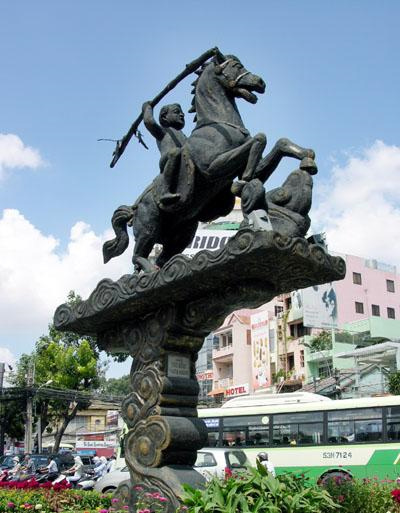
A statue of Thánh Gióng (Phù Đổng Thiên Vương) in Việt Nam.






